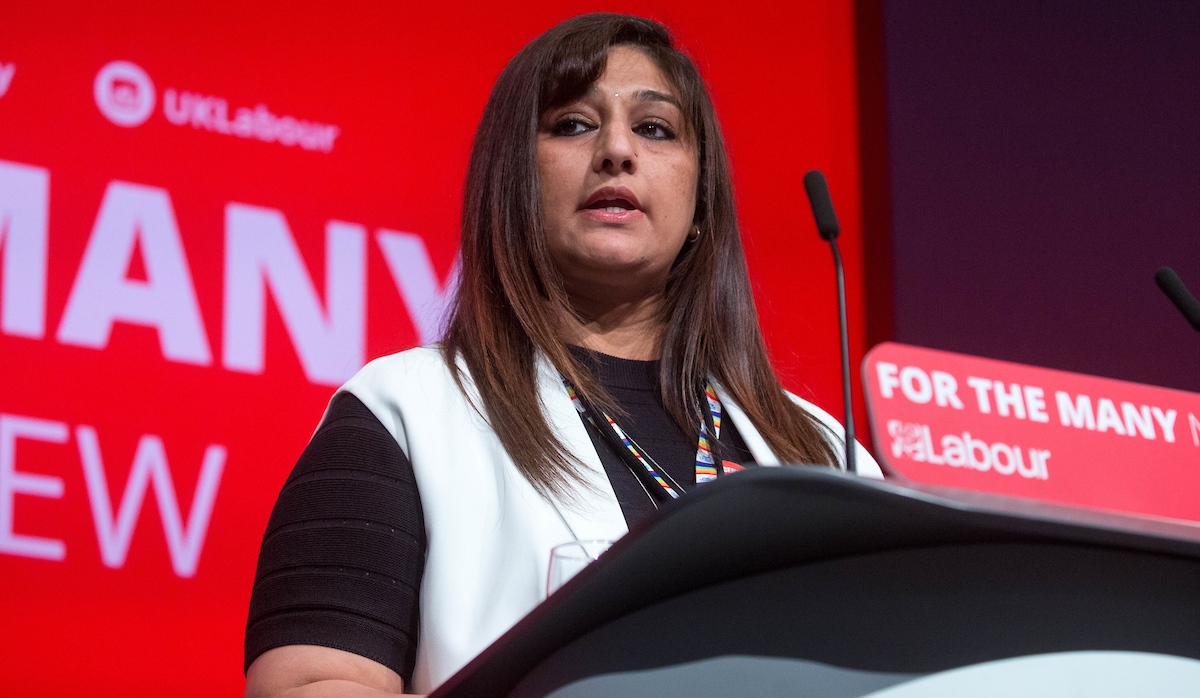Zero hours: on the rise
Thanks to trade union campaigning, led by Unite, a slew of companies have dropped the use of zero-hours contracts in a matter of days.
It all started with Sports Direct, which earlier this month said it would offer its shop staff fixed-hours contracts following a targeted campaign by Unite that uncovered the retail giant’s worst work practices.
This has set off a cascading domino effect – less than a week after Sports Direct’s announcement, the UK’s most popular pub chain Wetherspoons on Monday (September 12) followed suit by saying it would offer its more than 20,000 staff the opportunity to move off zero-hours contracts.
Then came brewer Greene King the very next day announcing the same. Now the Everyman cinema chain too has joined the growing number of big companies deciding to give their workforce a chance at fixed employment each week.
And earlier this year, fast food chain McDonald’s, previously the single employer using the greatest number of zero hours contracts in the UK – with 80,000 of its employees not guaranteed minimum hours of work each week – changed course, offering staff contracts with a minimum of four hours a week, 16 hours or 30 hours.
But a handful of big name companies dropping zero-hours contracts – no doubt in a bid to manage their reputations than from out of any genuine concern for their workforce – does not mean that their use will end amid some newfound zeal for corporate responsibility.
In fact, even as zero-hours contracts have become a dirty word in the media, their use is skyrocketing.
Earlier this month, new figures from the Office for National Statistics (ONS) found that the number of people who are on zero-hours contracts has gone up by 20 per cent in the last year alone, with nearly 1m working people not knowing from one week to the next whether they will be given any work.
Change in law
The war against zero-hours contracts cannot only be fought on the public relations battleground of this morning’s newspapers – to successfully rid Britain’s economy of the scourge of insecure work nothing short of a change in the law will be needed.
It’s no easy task but after years of trade union campaigning, New Zealand did just that.
In an historic decision in April, the New Zealand government unanimously passed legislation that effectively banned zero-hours contracts. No matter what end of the political spectrum they were on, New Zealand’s lawmakers heeded the call of the public and said enough is enough.
It was a moment that even stunned trade unions which campaigned for the ban.
“This is an incredible victory and I am still shocked by it to be honest,” said Mike Treen, leader of the New Zealand union Unite which led the fight against zero-hours contracts. “The fact that the ban was unanimously supported in parliament is pretty unbelievable.”
But would there be such an appetite for a wholesale ban of zero-hours contracts here in the UK? After all, we hear ad nauseam the argument, from both the government and the wider business community, that many thousands of workers actually like the zero-hours arrangement – they enjoy the so-called flexibility it affords.
Never mind that flexible work arrangements mostly benefit bosses – they can choose to ramp up or dial back their employees’ hours each week at will. And while yes, zero-hours workers technically do have the option of saying â€no’ to the hours they are given, many report that bosses retaliate by cutting back hours down to zero, effectively sacking workers without having to say â€You’re fired.’
Sham argument
The â€flexibility’ argument is a sham that a firm majority of the UK have in fact rejected, according to a new poll commissioned by Unite published today (September 16). In a boost for a New Zealand-style ban of zero-hours contracts, the poll showed that the public wants the UK to be rid of these work arrangements for good.
More than six in ten UK people (64 per cent) want zero hours contracts banned, according to the poll, with even a majority of Conservatives – 55 per cent – also calling for an end to their use.
The poll also reflected a pervasive sense of despair among both young and working-class people – the very same groups who tend to be on zero-hours contracts.
Among those aged 18-24 years of age, 55 per cent state that they are not confident about the future, while only 24 per cent across all age groups say they are pessimistic of the future.
And better off adults in social grades AB (35 per cent) and C1 (29 per cent) are more likely than those in grades C2 (22 per cent) and DE (20 per cent) to say that they are better off compared to this time last year.
These findings, Unite general secretary Len McCluskey argued, reveal “a disunited Britain and the scale of the task facing the Prime Minister who has vowed to govern not just for `a privileged few’.
“The truth is working class voters feel left out and left behind in Conservative Britain,” he added. “The question now is does the prime minister’s party have the policies needed to restore confidence to millions who feel betrayed by years of cuts and who now live in perpetual insecurity?
“She has already taken a very wrong turn down this road by making the return of elite education her political priority when actually what is needed to heal the growing equality divide is a decent income, a job and a home for families,” McCluskey noted.
Top of to-do list
“Fighting back against the scourge of insecure employment has to be top of her to-do list.”
“When it comes to measures to address economic and employment uncertainty there is widespread agreement on the one course of action that the government should take,” he said.
“It should bring forward plans now to make work pay in this country again, starting with banning zero hours contracts.”
And it should not only end there either, according to those polled. Seismic shifts in global economic trends and advances in technology are partly driving this push toward insecure, fragmented work. While legislation aiming to curb job insecurity can limit exploitation, there is a sense that in a few years’ time, banning things will simply not be enough.
That is why a substantial portion – 41 per cent – of those surveyed in the Unite poll supported a universal basic income (UBI), a once obscure idea that was only a decade ago dismissed as utopian but is now quickly gaining serious traction across the globe. This was in contrast to only 33 per cent who did not support the idea of UBI.
UBI would replace traditional welfare systems and grant everyone across the board a non-means tested income that covers basic living expenses, effectively decoupling the link between paid labour and the ability to live. In so doing it also compensates various forms of unpaid labour, such as caring for children or elderly parents, which is often undertaken by women.
Unite joined trade unions at this week’s TUC conference in positing UBI as a potential solution to counter the worst excesses of an economy increasingly dominated by insecurity and inequality.
Unite assistant general secretary Steve Turner, who moved the motion on UBI, said that the new system could have a place in “developing an alternative that is fit for the future”.
“[It is] one that recognises people will go in and out of paid employment during their lives, return to education, retrain and up-skill,” he said. “[It is] a system that supports innovation and risk taking, allows us all to participate in and have a stake in society, provides for a better work life balance, a shorter working week, earlier retirement and greater leisure and social time.
Simply put, he said, it is “a system that will deliver security and dignity as of right in a rapidly changing world.”
Quoting Victor Hugo, Turner noted, “Nothing is more powerful than an idea whose time has come.”
While no country has yet successfully adopted a UBI – Switzerland rejected the idea in a referendum held this year – an all-out ban on zero hours contracts does have a recent precedent and so offers real hope now in the fight against job insecurity.
As McCluskey said today, commenting on the Unite poll, “If it can be done for the workers of New Zealand, it should be done for the workers of the UK.”
 Like
Like Follow
Follow


